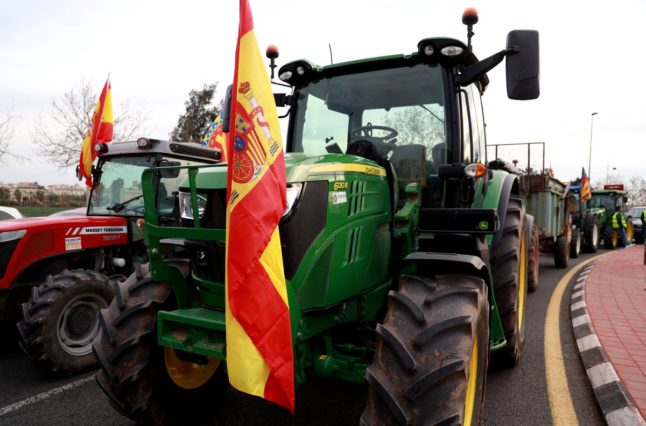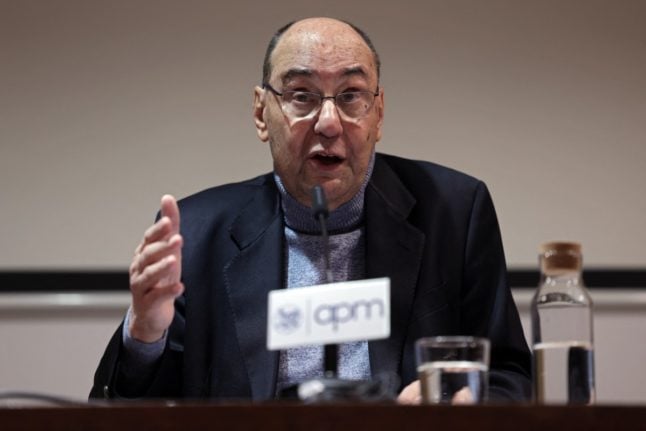The farmers’ protests that dominated France over recent weeks have now started in Spain.
On Tuesday 6th February, tractors blockaded motorways and caused traffic on main roads across the country as farmers gathered on motorways and roads in yellow hi-vis jackets and waving Spanish flags.
As the EU’s biggest fruit and vegetable exporter, Spain has long enjoyed the moniker of Europe’s ‘vegetable garden’ but in reality the farmers that produce these goods are facing significant difficulties and concerned for the future of the agricultural sector.
READ ALSO: MAP: Spanish farmers block roads across Spain
Like farmers in France but also Germany and Belgium, Spanish farmers are taking their tractors onto the streets to demand fair prices for their products, raise issue with the green agenda and unfair competition (an EU-wide problem and something French farmers accuse Spanish farmers of), asking for common agricultural policy rules to be softened and food chain law to respected, as well as calling for tax benefits on agricultural diesel to be extended.
As a result, road and motorway traffic has been slowed or brought to a standstill in many parts of Spain, with motorway exits blockaded and major pieces of infrastructure like ports and markets effectively cut off.
But how long will this disruption go on for? According to Spain’s farmers’ unions and associations, the demonstrations seem set to continue throughout the month of February across the country.
It is also worth noting that several local agricultural cooperatives and farmers’ groups could also organise protests on a more local level, so there could also be disruption not included in the calendar of major union-backed action.
Spanish farmers’ protest calendar
Wednesday 7 February: Unión de Uniones has called for protests in Santamaría del Páramo (León) and in the port of Castellón.
Thursday 8 February: There will be demonstrations in Ávila, Salamanca, Ciudad Real and Huesca.
Friday 9 February: Farmers in Zamora, Bilbao and Extremadura will be called to protest by Asaja, COAG and UPA.
Monday 12 February: Protests in the province of Alicante.
Tuesday 13 February: Farmers in La Rioja and Zaragoza will take to the roads and there will be protests called by Unión de Uniones in the ports of Tarragona and Santander.
Wednesday 14 February: Demonstrations are planned in Toledo, Guadalajara, Jaén, Seville, Palencia, Soria and Santa María La Real de Nieva (Segovia).
Thursday 15 February: Castellón and Boceguillas (Segovia).
Friday 16 February: Unión de Uniones has called for demonstrations in Venta Pinillas (Segovia).
Wednesday 21 February: Unión de Uniones also plans to carry park tractors outside Spain’s Ministry of Agriculture, Fisheries and Food in Madrid, and the Asaja, COAG and UPA unions have called for action in Murcia.
Thursday 22 February: Protests in Aragón, Cádiz and in the port of Valencia.
Friday 23 February: What is (for now) scheduled to be the final day of demonstrations will take place in León.



 Please whitelist us to continue reading.
Please whitelist us to continue reading.
Member comments